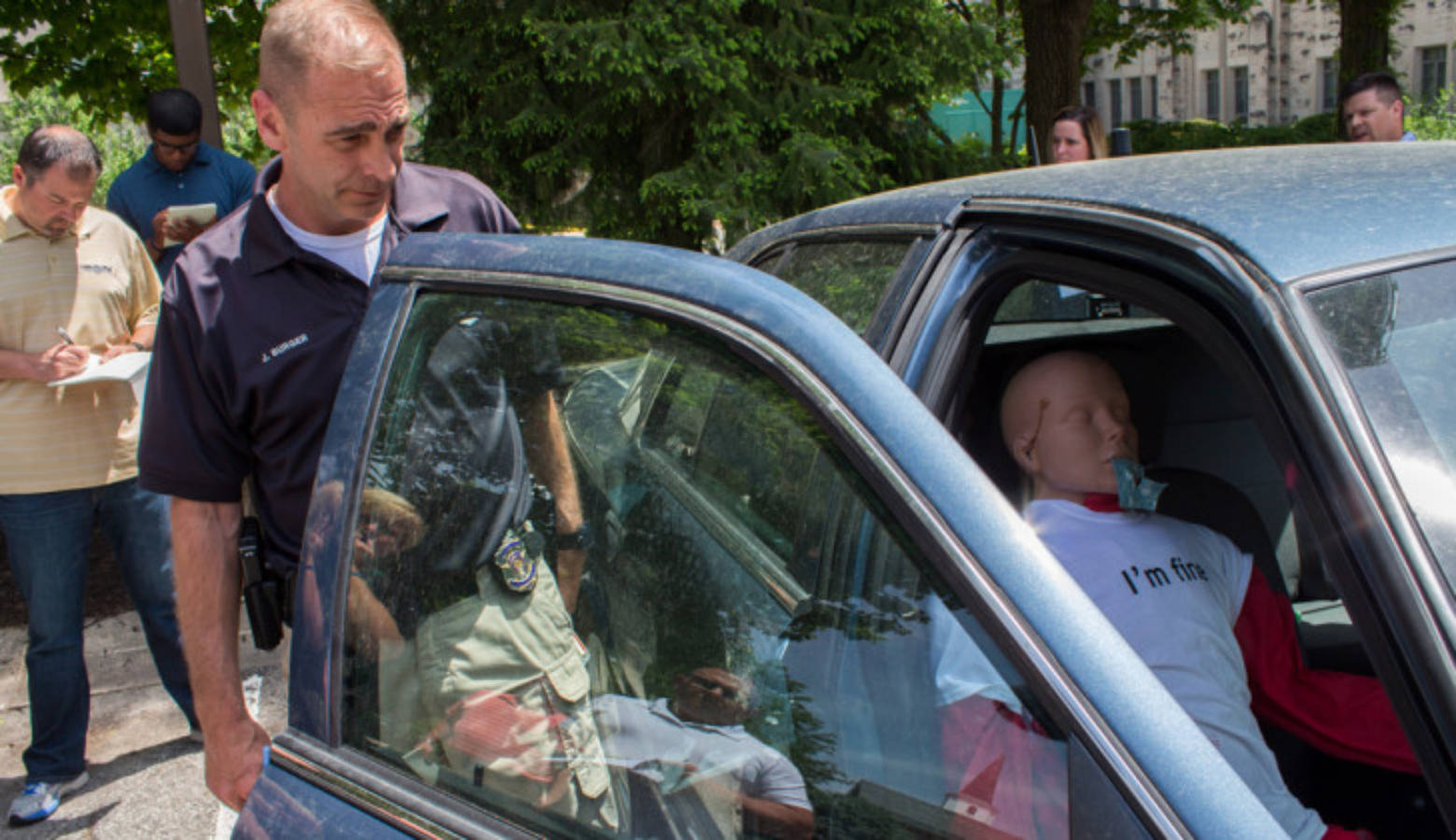Homicide School Expands For Detectives, From Rookies To Veterans

In the United States, around half of the violent crimes reported to police go unsolved. The changing nature of crime, and the technology used to solve it, means the job of a detective is always changing too. Now there’s a new effort in Indiana to help detectives keep up. Indiana Public Broadcasting’s Drew Daudelin takes us to “homicide school.”
A group of detectives have gathered around a parked car. They’re trying to decide what to do with a piece of evidence attached to a dead body – portrayed by a mannequin – that’s sitting in the passenger seat.
“What are you gonna do with that?” their teacher asks. “Are you gonna leave that in a body bag, or are you gonna remove that before you put it in the body bag?”
The scenario is part of Homicide School, a week-long series of lectures and workshops designed for detectives. This year is the first time the school, hosted by Butler University, was offered to any detective in the region.
Jeffrey Wager is the veteran detective guiding the group. Wager says a lot of detectives don’t stay on the job for long, which he attributes to its high-stress, time consuming nature.
He says seeing that made him realize how important it is for long-timers to pass down their hard-earned knowledge.
Crime scene investigations are all about the details, Wager tells the group.
“One of the tricks I’ve found over the years is, when I wanna know when the last time [a car’s] engine ran, I would reach up in here and grab where the motor mount is,” Wager says. “Because metal will hold the heat that’s under there, but it won’t get heat from the sun, because it’s protected.”
Some of the 63 detectives attending Homicide School this year work in specialized units. But Wager says it’s important, especially for small police departments that don’t have resources for a dedicated homicide unit, to prepare officers for any situation.
“That’s stuff that a burglary detective might not see, so we’re trying to pass along that information and just put it in their toolbox,” Wager says.
One of his students is Linda White. She’s worked for over 10 years as a domestic violence detective in Indianapolis.
“I don’t have the desire to go to homicide, but I want to be able to use all the tools I can to solve my stuff, even though I already have my suspect and victim,” White says.
White says a class on social media was especially useful, since the powerful investigative tool can be overwhelming to detectives who started long before it existed.
“There’s still people in my office that don’t know how to use social media,” White says.
White says she’s been to a number of training schools throughout her career, many of them expensive and far away. There’s a benefit to a localized effort like Homicide School, she says, where she can meet and learn from people she knows.
“Many of the presenters are senior, and some even retired, homicide detectives,” says Terry Curry, Marion County Prosecutor. “Sort of legends from the local community.”
The school is the result of a collaboration between Curry’s office and the Indianapolis Metropolitan Police Department.
Curry says it’s important for young detectives to learn fundamentals – things like the complex, psychological challenge of getting victims and witnesses to cooperate. But he says rapidly evolving technology makes regular training vital for older detectives, too.
“The tools that are available to us, to an older prosecutor like me, it’s something that we didn’t have access to even a few years ago,” Curry says.
One of those tools is called NIBIN, a national database for bullets and cartridge cases found on a crime scene. NIBIN can help detectives connect one crime to another, evidence that could be the missing link in an unsolved case.
But systems like NIBIN need to be learned.
Detective Wager says, like anyone who hopes to do their job well, he’s happy to keep learning.
“There’s nothing I like better than putting a puzzle together,” Wager says. “And if I can use a new way to make a part of that puzzle fit, I enjoy that.”
Wager says the plan is to start running Homicide School twice a year.
